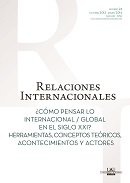Pierre Bourdieu and International Relations: Power of Practices, Practices of Power
Keywords:
Bourdieu , Political Sociology , poststructuralism , transnationalism , networksCopyright (c) 2013 Didier BIGO

This work is licensed under a Creative Commons Attribution-NonCommercial-NoDerivatives 4.0 International License.
Abstract
This article demonstrates how the work of Pierre Bourdieu offers a productive way to practice research in international relations. It especially explores the alternatives opened by Bourdieu in terms of a logic of practice and practical sense that refuses an opposition between general theory and empirical research. Bourdieu’s preference for a relational approach, which destabilizes the different versions of the opposition between structure and agency, avoids some of the traps commonly found in political science in general and theorizations of international relations in particular: essentialization and ahistoricism; a false dualism between constructivism and empirical research; and an absolute opposition between the collective and the individual. The “thinking tools”of field and habitus, which are both collective and individualized, are examined in order to see how they resist such traps. The article also engages with the question of whether the international itself challenges some of Bourdieu’s assumptions, especially when some authors identify a global field of power while others deny that such a field of power could be different from a system of different national fields of power. In this context, the analysis of transversal fields of power must be untied from state centrism in order to discuss the social transformations of power relations in ways that do not oppose a global?international level to a series of national and subnational levels.





